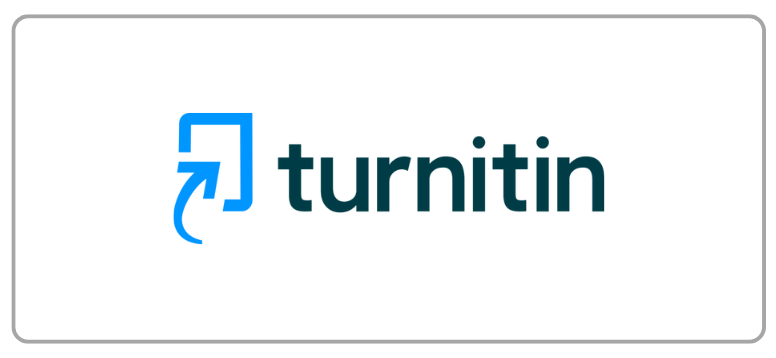Rhetorical Strategy and Linguistics Features in E-Petition Through Change.org
DOI:
https://doi.org/10.21512/lc.v13i4.6104Keywords:
rhetorical strategy, linguistics feature, e-petition, CDAAbstract
The research explored what types and how rhetorical strategy correlated with the linguistics features in e-petitions through Change.org entitled “KPK dalam Bahayaâ€. The data were e-petitions collected through Change.org. The analysis was holistically descriptive and included in qualitative research. The approach used critical discourse analysis by Fairclough that was using Fairclough’s three-dimensional framework and the strategy of rhetoric by Aristotle. Those theories helped the researcher to find out how the rhetorical strategy and the linguistics features created persuasive meaning. The findings indicate that euphemism, metaphor, connectives, logical connectors, rhetorical questions, and modality support the rhetoric strategy constructing the meaning beyond the words. Through one of the rhetoric strategies, pathos persuades the readers to agree to the argument and sign the e-petitions. Due to the emotional appeals, all of these language instruments help the rhetoric to provoke the readers significantly.
References
Al-Momani, K. R. (2014). Strategies of persuasion in letters of complaint in academic context: The case of Jordanian University students’ complaints. Discourse Studies, 16(6), 705–728. https://doi.org/10.1177/1461445614546257.
Aristotle. (2007). On rhetoric: A theory of Civic discourse (Second edition). Oxford: Oxford University Press.
Fairclough, N. (2001). Language and power (2nd edition). Abingdon: Routledge.
Hagen, L., Harrison, T. M., Uzuner, Ö., May, W., Fake, T., & Katragadda, S. (2016). E-petition popularity: Do linguistic and semantic factors matter? Government Information Quarterly, 33(4), 783–795. https://doi.org/10.1016/j.giq.2016.07.006.
Higgins, C., & Walker, R. (2012). Ethos, logos, pathos: Strategies of persuasion in social/environmental reports. Accounting Forum, 36(3), 194–208. https://doi.org/10.1016/j.accfor.2012.02.003.
Ko, H. (2015). Political persuasion: Adopting Aristotelian rhetoric in public policy debate strategies. International Journal of Humanities and Social Science, 5(10), 114–123.
Lindner, R., & Riehm, U. (2009). Electronic petitions and institutional modernization: International parliamentary e-petition systems in comparative perspective. JeDEM - EJournal of EDemocracy and Open Government, 1(1), 1–11. https://doi.org/10.29379/jedem.v1i1.3.
Ospina, S. (2004). Encyclopedia of leadership. London: Sage Publication.
Permata, A. G. (2017). Peran Indonesia Corruption Watch (ICW) dalam melakukan advokasi untuk mencegah revisi Undang-undang nomor 30 tahun 2002 tentang komisi pemberantasan tindak pidana korupsi tahun 2010 dan 2015. Unpublished Thesis. Depok: Universitas Indonesia.
Silverman, D. (2014). Interpreting qualitative data: Methods for analyzing talk, text, and interaction. London: SAGE Publication. https://doi.org/10.1016/B978-0-12-012755-9.50004-8.
Smithson, R. (2013). Rhetoric and psychopathy : Linguistic manipulation and deceit in the final interview of Ted Bundy. Diffusion: The UCLan Journal of Undergraduate Research, 6(2), 1–13.
Špago, D. (2017). Rhetorical questions or rhetorical uses of questions? ExELL, 4(2), 102–115. https://doi.org/10.1515/exell-2017-0009.
Sudaryanto. (1993). Metode dan aneka teknik analisis bahasa: Pengantar penelitian wahana kebudayaan secara linguistis. Yogyakarta: Duta Wacana University Press.
William, G. H. (2019). Ethos-pathos-logos: The 3 rhetorical appeals. Retrieved from http://georgehwilliams.pbworks.com/w/page/14266873/Ethos-Pathos-Logos-The-3-Rhetorical-Appeals.
Wright, S. (2015). E-petitions: The handbook of digital politics. USA: Edward ELgar.
Downloads
Published
How to Cite
Issue
Section
License
Authors who publish with this journal agree to the following terms:
a. Authors retain copyright and grant the journal right of first publication with the work simultaneously licensed under a Creative Commons Attribution License - Share Alike that allows others to share the work with an acknowledgment of the work's authorship and initial publication in this journal.
b. Authors are able to enter into separate, additional contractual arrangements for the non-exclusive distribution of the journal's published version of the work (e.g., post it to an institutional repository or publish it in a book), with an acknowledgment of its initial publication in this journal.
c. Authors are permitted and encouraged to post their work online (e.g., in institutional repositories or on their website) prior to and during the submission process, as it can lead to productive exchanges, as well as earlier and greater citation of published work.
USER RIGHTS
All articles published Open Access will be immediately and permanently free for everyone to read and download. We are continuously working with our author communities to select the best choice of license options, currently being defined for this journal as follows: Creative Commons Attribution-Share Alike (CC BY-SA)


















